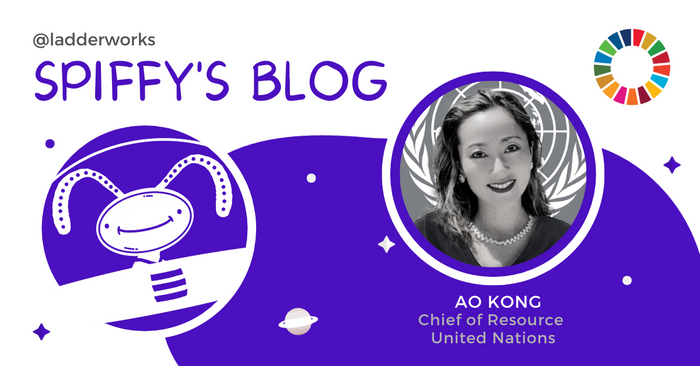Elpida: Thanks for having me, Spiffy. The World Health Organization says that 736 million women all over the world are at risk. We help women in vulnerable communities across the world get an education that's easier to understand and use. We give them a chance to learn and get a special diploma from the Ivy League school—Cornell University. This helps them have more opportunities to earn money and improves their tough situations. Our goal is to make sure women in faraway places can learn skills that make their lives better by giving them more self-confidence, freedom, and a better place in society.
Temina: It’s great to be here, Spiffy! Our vision is for everyone to have access to a supportive coach, counselor, or mentor. Everyone deserves a bit of support as they solve the problems in their lives, or search out a path to a better future. But not everyone gets the support they need. So, we help deliver useful advice, information, and counseling to people facing difficult lives. In some cases, we train teachers, nurses, parents, and politicians to serve as mentors. We also create phone apps, videos, and books that can help people through their problems. The challenge is to make sure that the advice we offer is useful and relevant. We want to help people invest in their own education, health, and happiness—whatever it is they are looking for.
Thanks for having me, Spiffy! The United Nations Technology Bank for Least Developed Countries (LDCs) is the United Nations entity dedicated to serve the 46 least developed countries as the gateway to science, technology, and innovation for achieving sustainable development. The least developed countries are low-income countries highly vulnerable to economic and environmental shocks and have low levels of accumulated knowledge and skills that make a productive workforce. They are confronting severe structural impediments that leave them very limited options to achieve sustainable development when other countries are advancing. One of the key solutions is supporting their access to science and tech such as research capacity, digitalization, sustainable agriculture, and manufacturing.




